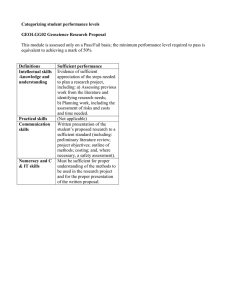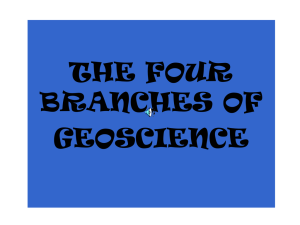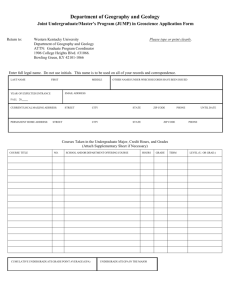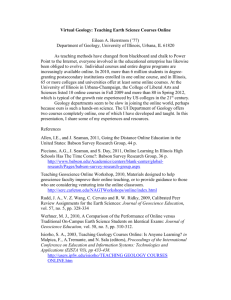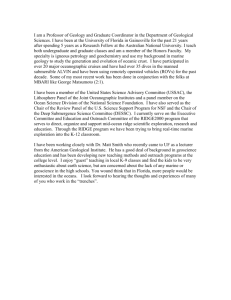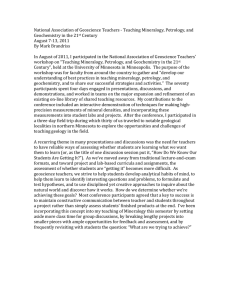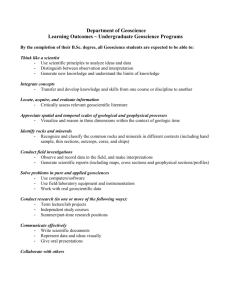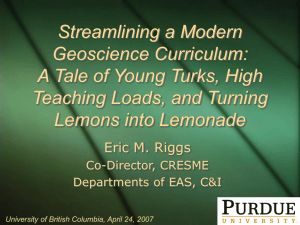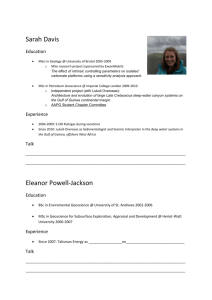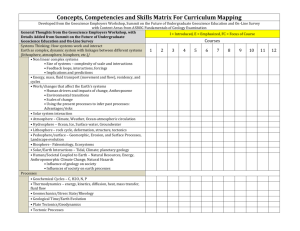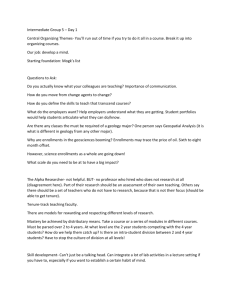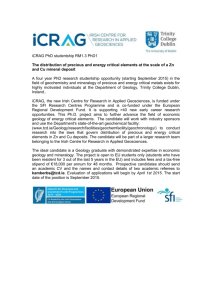Summit on the Future of Undergraduate Geoscience Education
advertisement
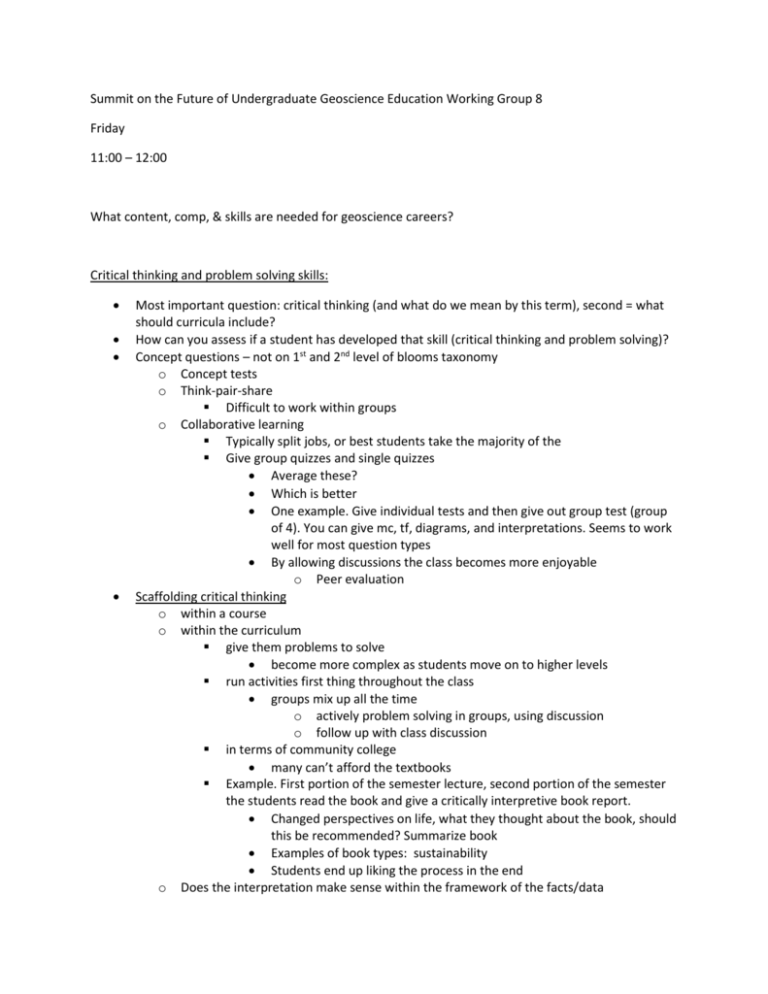
Summit on the Future of Undergraduate Geoscience Education Working Group 8 Friday 11:00 – 12:00 What content, comp, & skills are needed for geoscience careers? Critical thinking and problem solving skills: Most important question: critical thinking (and what do we mean by this term), second = what should curricula include? How can you assess if a student has developed that skill (critical thinking and problem solving)? Concept questions – not on 1st and 2nd level of blooms taxonomy o Concept tests o Think-pair-share Difficult to work within groups o Collaborative learning Typically split jobs, or best students take the majority of the Give group quizzes and single quizzes Average these? Which is better One example. Give individual tests and then give out group test (group of 4). You can give mc, tf, diagrams, and interpretations. Seems to work well for most question types By allowing discussions the class becomes more enjoyable o Peer evaluation Scaffolding critical thinking o within a course o within the curriculum give them problems to solve become more complex as students move on to higher levels run activities first thing throughout the class groups mix up all the time o actively problem solving in groups, using discussion o follow up with class discussion in terms of community college many can’t afford the textbooks Example. First portion of the semester lecture, second portion of the semester the students read the book and give a critically interpretive book report. Changed perspectives on life, what they thought about the book, should this be recommended? Summarize book Examples of book types: sustainability Students end up liking the process in the end o Does the interpretation make sense within the framework of the facts/data Introduction into brain mapping (concepts maps and categorizing grids) The scaffolding must be in place to come to a final decision Metacognition – how students are learning o Rule of 3 & 4s What skills do you really want them to have, decide as a department and then use these skills in more courses than just one Take students on field trips twice – take them once in lower level class and then again in upper level (or even in 2 upper level classes ex. Mineralogy and structure) o Today everyone has Google so we have many of the facts – but you must be able to use the knowledge to answer questions Impacts of Critical Thinking o Geointution – geospecific critical thinking – what are the components of this? o Why does this work, why is it there? o Is this data valid, is the picture the truth, o Is there enough data to accurately solve the problem o How do we get valid data o What is the next question? o Does this question make sense within the geologic world and within the broader geoscience world (ect, ect) o Does the interpretation make sense within the framework of the facts/data Introduction into brainmapping (concepts maps and categorizing grids) o Understand whats happening in greater world Ability to put things into context How do you assess with MC exam – they must think through the problem o Active engagements active learning in class and then give exams at home Other things to talk about: o Definition of critical thinking within course, program, and department: o Critical thinking must be learned over time through all classes and should snowball over time o Assessments must be authentic – did the students actually learn the material Departments must decide how to proceed Integrated within department, define what critical thinking is, define how assessments work and over what time scale does this occur? Accountability – classroom visits are “touchy” for some educators Make changes on administrative level Effective peer review is difficult in terms of knowing the other professors in the department Pre-tenure professors are highly supervised and checked by others, why does it stop once a professor gets tenure? o How to make students think like a scientist Geoscientist Scientist Citizen of the world After Lunch: What should next generation undergraduate geoscience cirrucula include: o Tracks vs breath? o What is physical geology? Plate tectonics, rock types, minerals, earthquakes, environments Physical because doesn’t include deep time and history Some physical geology has more mathematics than non-major classes o Which approach would you prefer: systems approach versus classic approach (physical approach) or earth science? Systems is more integrative Gets people more excited, learn how to make observations at multiple scales, Make connections to society o Mineralogy – teach differently depending upon systems versus classic? No, Placed based learning may help students remember minerals ect Scale based learning is also important to learn in intro classes that will affect mineralogical skills later o Next generation: systems approach, transdisciplinarity – will work better throughout the curriculum Concepts: o Earth science o Rock cycle o Earth materials o Climate change o Science in Society Why geology is important o Plate Tectonics o Surface Processes o Deep Time & Evolution o Oceanic o Biogeochemical processes Skills: o GIS o Critical thinking o Group collaboration o Reading comprehension o Field skills Should required field methods with environmental emphasis or structure based field camp Internships – alumni can be useful, department introduced internships Undergraduate research Assessments: o How to do this? o Some schools have rubrics, others can be far more rigorous
